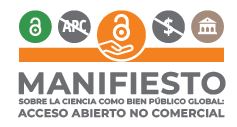Didactic strategies for strengthening the formative process in the mechanical drawing curricular unit
DOI:
https://doi.org/10.5281/zenodo.12627550Keywords:
Teaching strategies, Formative process, Mechanical drawing, Investigation actionAbstract
In this research, the strengthening of the formative process for students in the Mechanical Drawing course within the Engineering Mechanical Maintenance Project (PIMM) at the “Rafael María Baralt” National Experimental University (UNERMB), located in Ciudad Ojeda, is proposed. This is achieved by implementing didactic strategies tailored to the current context, with the aim of promoting student participation in the formative process. The research follows a qualitative research-action approach. The key actors in this study are the students from section 01 of Mechanical Drawing during the II-2023 period, as well as the researcher-teacher. To collect the necessary information, unstructured interviews, field notes with descriptive photographic records, and audio recordings were used. The results demonstrate an increase in student participation and commitment in the teaching-learning process. Additionally, there was a reduction in dropout rates, improvement in academic performance, and increased interest in learning, thereby transforming the observed reality and enriching the teacher’s practice.
Downloads
References
Ausubel, D., Novak, J. y Hanesian H. (1983) Psicología educativa. Un punto de vista cognoscitivo. Editorial Trillas.
Carr, W. & Kemmis, S. (1988) Teoría crítica de la enseñanza. Ediciones Martínez Roca.
Corona, L. (2018) Investigación cualitativa: Fundamentos epistemológicos, teóricos y metodológicos. Vivat Academia, 144.
Díaz, F. & Hernández, G. (2010) Estrategias Docentes para un aprendizaje significativo. Editorial McGraw-Hill.
Fonseca, M. y Aguaded, J. (2007) Enseñar en la Universidad. Editorial Netbiblo, S.L.
Hernández, V. (2006). Mapas Conceptuales. La Gestión del Conocimiento en la Didáctica. Alfaomega, Grupo editor S.A. de C.V.
Herrera, C. y Villafuerte C. (2022). Estrategias didácticas en la educación. Horizontes. Revista de Investigación en Ciencias de la Educación. Vol. 7, N° 28. https://doi.org/10.33996/revistahorizontes.v7i28.552
Hurtado, J. (2015). El proyecto de Investigación (8va ed.) Ediciones Quirón.
Latorre, A. (2005) La investigación-acción: Conocer y cambiar la práctica educativa. Editorial Graó.
Martínez, M. (2006). La Investigación cualitativa (síntesis conceptual). Revista de Investigación en Psicología UNMSM, Vol. 9, N°1.
McKernan, J. (2001). Investigación acción y currículo. Ediciones Morata, S. L.
Morales Urbina, E. M. (2008). Innovación y mejora del proceso de evaluación del aprendizaje. Una Investigación-acción colaborativa en la asignatura Matemática I de los Estudios de ingeniería de la UNEXPO, Vicerrectorado Puerto Ordaz, Venezuela. [Tesis Doctoral, Universitat de Girona] http://hdl.handle.net/10803/8010
Sandín, M. (2003). Investigación cualitativa en educación. Fundamentos y tradiciones. Editorial McGraw-Hill
Published
How to Cite
Issue
Section
License
Copyright (c) 2024 Universidad Alonso de Ojeda

This work is licensed under a Creative Commons Attribution-NonCommercial-ShareAlike 4.0 International License.
All content of Ethos Journal will be free access, distributed under the Creative Commons license (BY-NC-SA).




